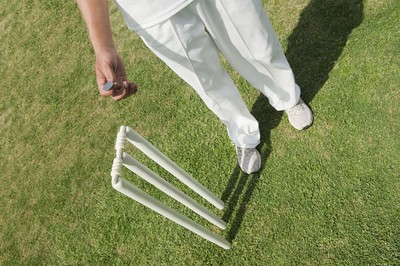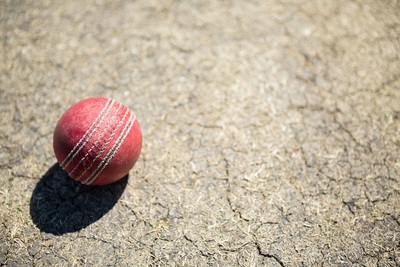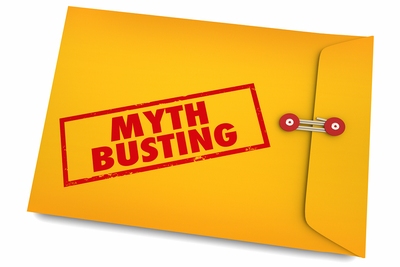 The toss in cricket is actually one of the most important parts of the game. If you are able to win the toss you have a huge advantage over your opponents so it plays a huge role. The flip side is that that there are some tosses which are best to lose as well, which generally means that neither team are sure what to do first on the pitch as they don’t know how it will react.
The toss in cricket is actually one of the most important parts of the game. If you are able to win the toss you have a huge advantage over your opponents so it plays a huge role. The flip side is that that there are some tosses which are best to lose as well, which generally means that neither team are sure what to do first on the pitch as they don’t know how it will react.
For a team that wins the toss, they are faced with the decision of whether to bat or bowl first. This will be based on a number of factors, but usually they go on how the pitch looks, the overhead conditions, weather forecasts and also historical data of whether batting or bowling first at that ground has an advantage.
From a betting point of view, the process is very simple. All you are doing is choosing which team is going to win the toss. It’s a 50/50 chance but bear in mind that you will be offered odds less than even money given that bookmakers work their margin into the bet as well. You should be looking at no worse than 1.90 for either result, so if you aren’t getting better then you should be looking at possibly finding a different bookie.
How does the toss affect play?
We’ve touched briefly on how the toss might affect a match, but we want to dive a little deeper into it as there’s quite a bit to cover.
Condition of the pitch
 Before the game the players from both teams will be able to come and take a look at the wicket. They can’t play on it or even bounce a ball on it, but you can often tell quite bit from the wicket visually as to how it might perform.
Before the game the players from both teams will be able to come and take a look at the wicket. They can’t play on it or even bounce a ball on it, but you can often tell quite bit from the wicket visually as to how it might perform.
The first thing the players will do is feel how dry it is. You can simply rub your hand on the top to see if any moisture will come out, or another sign of it being particularly dry is cracking that can occur. Dry pitches are generally ones that are going to favour the batting team early on and they should be quite flat, but as the game wears on, you can likely expect some uneven bounce and even turn for the spinners.
Next, they will look to see how much grass is left on the top. Grass is left on to protect the wicket if it’s been particularly wet in the build-up. If it has been raining, it’s likely the groundsman has been unable to cut it, which leaves a green tinge.
Green wickets will favour the bowling team. This is because the ball interacts with the grass in a much more erratic way than if there were no grass, causing movement off the seam and then making it harder to bat on.
Overhead conditions
 Another area that will be taken into account at the toss is the overhead conditions and even the forecast throughout the match. Test matches or First Class matches that are played over multiple days will need to take into account the upcoming weather forecast much more than those betting on T20 or even ODI matches.
Another area that will be taken into account at the toss is the overhead conditions and even the forecast throughout the match. Test matches or First Class matches that are played over multiple days will need to take into account the upcoming weather forecast much more than those betting on T20 or even ODI matches.
Overcast conditions are going to massively help the bowling side. The “heavy” air that cloud cover brings makes the ball react differently, which in turn means the ball should swing more as there is more friction caused between the air and the ball. On clear days, with low humidity, you will find that the ball can move through the air easier, which means it will swing less.
The basics would be that damp, humid, and overcast will work best for the bowling team, whereas clear, dry days will assist the batting team.
Historical data on that ground
![]() This is a key point that many people overlook, but you can find trends to see how historical data at each ground works out based on the toss. Some grounds are just set up to be a batting or bowling paradise (usually the former) and regardless of conditions you always either bat or bowl there based on the data.
This is a key point that many people overlook, but you can find trends to see how historical data at each ground works out based on the toss. Some grounds are just set up to be a batting or bowling paradise (usually the former) and regardless of conditions you always either bat or bowl there based on the data.
This is where you can do some pretty basic research into who has won the toss and the outcome of the match. There are stats-based sites like CricInfo that will include all of this.
Chennai in India is a good example of this, because of the fact that the pitch dries out very quickly, making it a spinners paradise in the 4th innings of Test Matches. The win percentage of 37.5% for teams that win the toss is considerably higher than the 25% of teams that win if they lose the toss.
Myth busting: no correlation between results and winning the toss
 For decades, people have sagely told us that the coin toss plays a huge role in a cricket match. ‘Win the toss, win the match’ is a common phrase that gets thrown about and we even alluded to the same earlier in this article.
For decades, people have sagely told us that the coin toss plays a huge role in a cricket match. ‘Win the toss, win the match’ is a common phrase that gets thrown about and we even alluded to the same earlier in this article.
This can be applied to some grounds, Chennai as mentioned above is one place where winning the toss really helps; but, and this is a massive but, there is actually very little statistical data that highlights any link between standing a better chance of winning a cricket match after a team has won the toss.
An interesting report that was carried out by Basil M. de Silva and Tim B. Swartz found that from the 427 ODI matches that they looked at, winning the toss at the start of the match provided no competitive advantage. They went on to conclude that playing at home, regardless of winning the toss or not, was a much bigger advantage, increasing the probability that the home team will win by as much as 0.5.
Whilst many would say that this might be fairly obvious in the shorter format, you may be surprised to hear that even in the Test arena, winning the toss doesn’t make all that much difference either.
Taking numbers from CricInfo, we were able to see that around 40% of teams that won the toss went on to win the match, whereas around 36% of teams that lost the toss went on to win the match.
As you can see, the numbers are very close, and you would be splitting hairs to say that there was any significant correlation. From a betting point of view, it’s tough to state that you need to be choosing the team that wins the toss in any format of the game.
You would in fact, be better off taking the home team before any toss that is made if you were going to go in blind, which we don’t’ recommend.
To conclude, the toss can still play a vital role in the match, and whilst the numbers suggest that it is very close, it will be ground specific. We would definitely be looking at the variables that we have spoken about previously and then decide how important the toss is for a single match, rather than just simply going along with a theory that teams that win the toss have a big advantage, since this has been proven to be false.